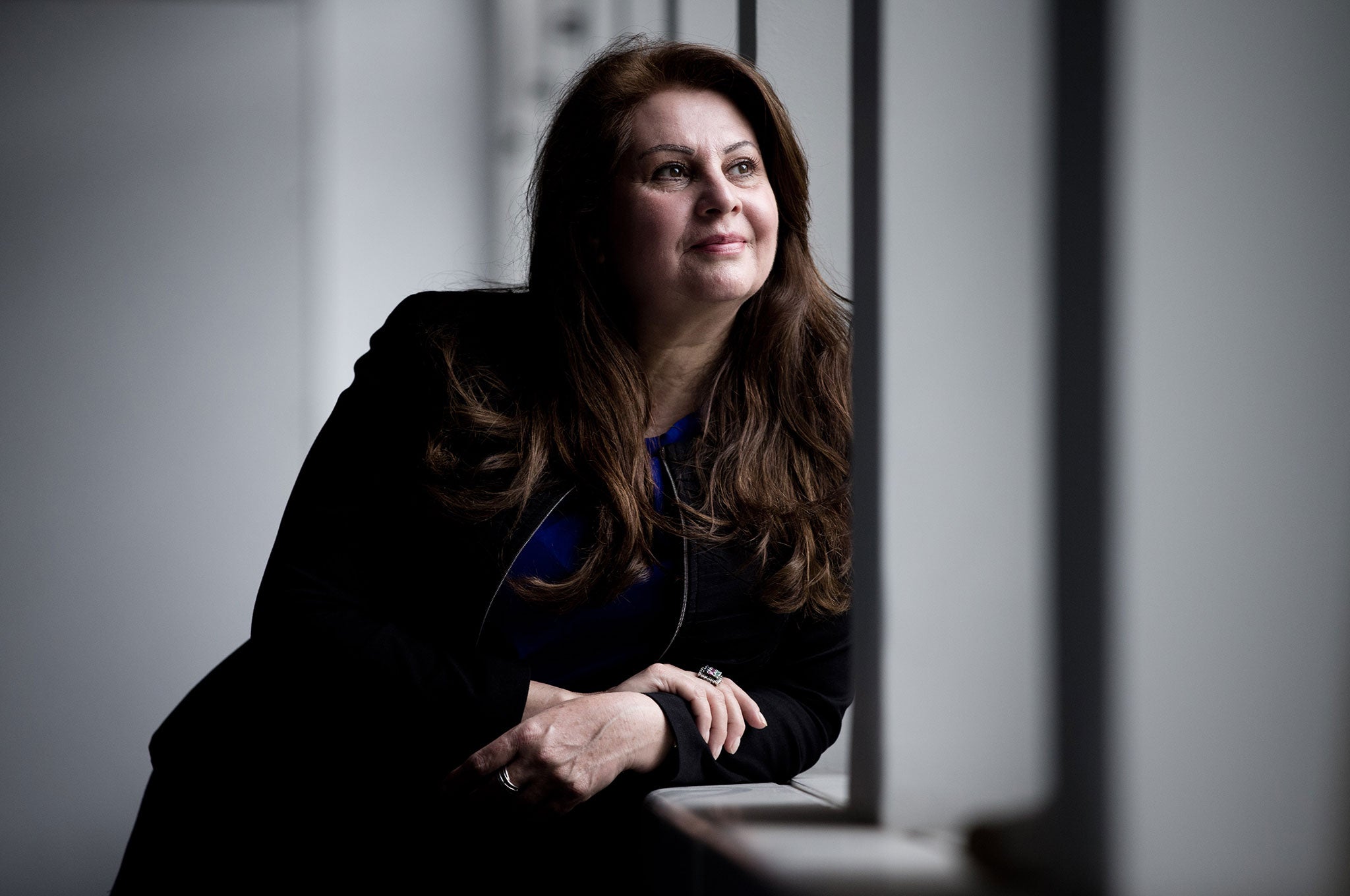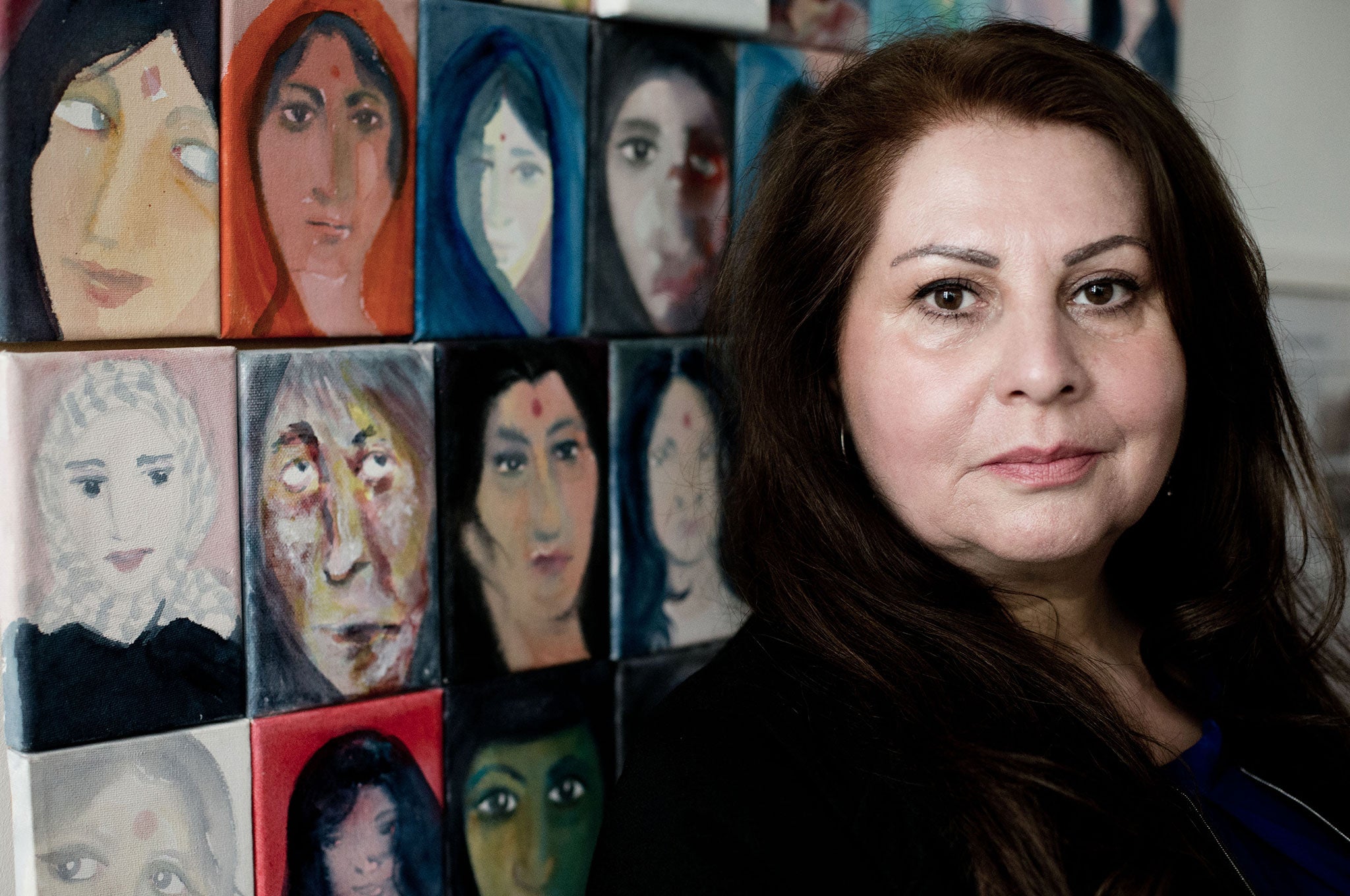Diana Nammi on women's rights: 'We should not use culture to justify murdering women'
As she picks up a Barclays achievement award, Diana Nammi tells of her lifelong struggle to stop honour killings

Diana Nammi has been battling for women’s rights since she was a teenager growing up in Iran. A former Peshmerga fighter who came to the UK in 1996, she has been instrumental in the campaign to bring honour killers to justice in British courts as well as striving to get forced marriages banned in this country.
Her achievements will be recognised when she is named as one of the six recipients of the Barclays Women of the Year Awards in London tomorrow. She has earned this for her work at the Iranian and Kurdish Women’s Rights Organisation (IKWRO), which she founded in her home in 2002 to provide advice and counselling for women from Middle Eastern, North African and Afghan communities. It now has 16 paid staff and last year helped 780 women face to face as well as taking thousands of phone calls.
In the past, the only recognition that she and her staff have had is abuse, threats and even physical attack. “It’s very hard to be acknowledged for what we do, so this is amazing. I am grateful to everyone here for their hard work,” she says. “Many people tried to prevent us talking about this and said, ‘You are disclosing private matters to the world’, but it is honour killings that bring dishonour. Killing women should not be tolerated.”
Not that the 50-year-old is resting on her laurels. She is turning her attention to “marital captivity” – women trapped in desperately unhappy, often violent, religious marriages who are unable to divorce.
She is also launching a campaign for all school staff to be trained to spot signs of honour-based violence, forced marriage and female genital mutilation. And Nammi wants pupils to be taught that they have the right not to face honour-based violence.
Forced marriages were made illegal in England and Wales in June and parents who force their children to marry can now face up to seven years in prison. “This law is the first step, but not the whole step,” she says. “What we need next is to raise awareness within the community and to educate people about this law and about why the practice is wrong.”
Children as young as nine are being forced into marriage, she says. In some cases, “they are still attending schools, struggling to do homework, and at the same time they are being raped by a middle-aged man regularly, and being abused by their families”.
“We need to tell children from a young age what human rights are,” she insists. “At the moment, it is the opposite, with many people telling young girls, ‘It’s your duty to be a good mother and good wife and housewife’, but they are not telling them their rights. We need to empower them.”

Despite more than 1,300 women and men receiving support from the Forced Marriage Unit last year, with 15 per cent of cases involving those under 16, she believes that most cases go unreported.
Once in a forced marriage, it is very difficult to get out. “We want women to have access to divorce,” Nammi says. “If two people are to be married, both need to approve; but, if it is about divorce, you shouldn’t need two people.” She believes more than 120 Islamic sharia courts are operating in the UK and too many are reluctant to grant women divorces. “I think sharia courts should be banned in the UK,” she says. “Allowing sharia to operate in this country discriminates against Muslim women.”
The inspiration for Nammi’s work comes from her father, a progressive thinker in the Iranian Kurdish community. One of her earliest memories is of her father speaking up against 300 wedding party guests who were calling for a new bride to be killed because it was thought she was not a virgin. “I learnt from that that one person can make changes,” Nammi says, “but I also questioned why women should be killed for love.
“What is happening in Syria now, it was the same in Iran,” she says.
After narrowly escaping arrest as a teenager in Iran for her feminist activities, she went underground and, for the next 12 years, became a freedom fighter in Kurdistan, often on the front line, “sleeping between graves” and championing women’s rights.
After she became pregnant in 1991 and a chemical bomb attack killed 35 people at the local radio station in Iraq where she was working, Nammi decided to move to the UK to bring her child up in a place of safety.
Her motivation for setting up IKWRO came when the translator assigned to help her and her daughter settle in Britain was murdered by her husband. She called the police, who told her that they were powerless and were fearful of calling it an “honour crime” as they did not want to appear racist; they believed it was a cultural issue.
“This is not our culture, this is a criminal’s culture,” Nammi says. “You should not use culture to justify murdering women.”
